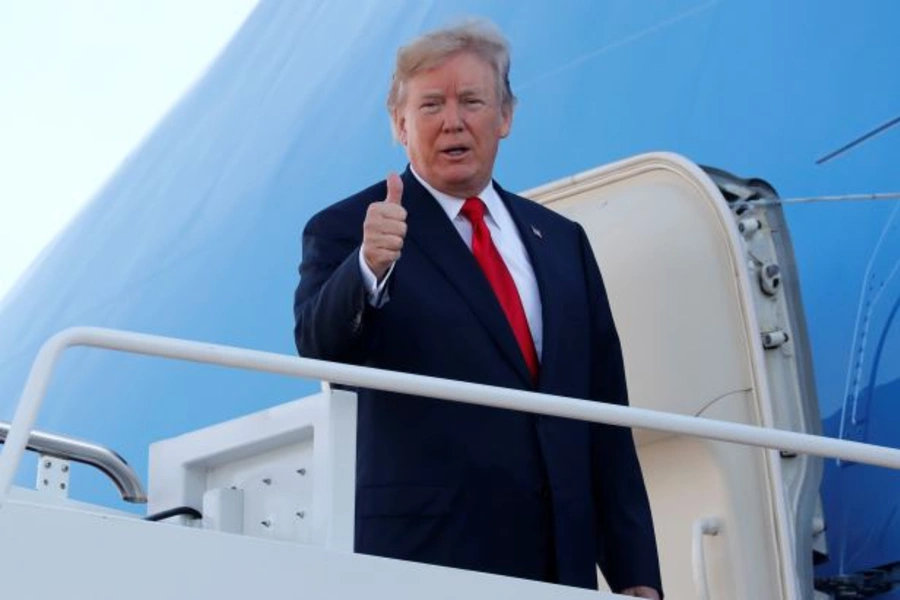There is a restlessness in the air, an unease that clings to the streets of Nigeria like the harmattan dust -thick, stifling, inescapable. A nation on the brink groans under the weight of its own chaos, its people caught between the merciless blades of banditry and insurgency, where faith becomes both a refuge and a target. Now, the United States has cast its unrelenting gaze on Nigeria’s unraveling security crisis, threatening sanctions over alleged persecution of Christians. The federal government rebuffs this claim, calling it the work of mischief-makers, but the world is watching, waiting. And perhaps, just perhaps, this storm of international scrutiny is the very thing that could shake Nigeria into action.
A bloodstained land beyond religious fault lines
The Nigerian landscape is scarred by violence that does not discriminate. In the forests of Zamfara, the wails of Muslim villagers rise to the heavens as bandits storm their communities, razing homes, stealing daughters, and spilling blood. In Kaduna, Christian enclaves have become fields of mourning, their churches turned to ashes, their pastors silenced in cold-blooded executions. The battle lines are drawn not between faiths, but between the governed and the ungoverned, the secure and the vulnerable. And yet, the world sees what it chooses to see.
The US Congress, armed with reports of attacks on Christians, frames the crisis as a war against one faith. The Nigerian government, in turn, issues its routine denials, insisting that Muslims suffer just as greatly, if not more, from the relentless onslaught of terror. The truth, tangled and bloodstained, lies somewhere in between. This is not a war of one religion against another; this is a war against the very soul of Nigeria.
Words and Bullets: A government in denial
Former Interior Minister Abdulrahman Dambazau, a man who once led Nigeria’s military, calls the accusations of religious persecution “a gross misrepresentation.” He is not wrong. In the Northeast, where Boko Haram’s shadow looms large, the victims are overwhelmingly Muslim. In the Northwest, where banditry thrives, entire communities – Muslim and Christian alike – have been reduced to dust. And yet, in Plateau, in Benue, in Southern Kaduna, Christians have watched their places of worship crumble under relentless attacks. The government, ever defensive, dismisses these concerns as propaganda, an attempt to paint Nigeria in a bad light.
But denial does not shield the innocent from bullets. It does not erase the horror of a child ripped from their mother’s arms, of a pastor dragged to his execution, of an imam slaughtered in the name of a cause he never pledged allegiance to. The Nigerian government speaks of “substantial gains” in the fight against insecurity, but the graves tell a different story. The people do not need assurances; they need action, because actions speak louder than words.
US Sanctions threat: Curse or blessing?
There is an irony in Nigeria’s history – it often takes the weight of foreign pressure to rouse its leaders from complacency. The last time the US designated Nigeria a Country of Particular Concern, (CPC), it was a diplomatic slap in the face, one that spurred frantic attempts to shift the narrative. Now, the threat of sanctions looms again, and with it, the possibility of forced accountability. If the fear of economic and military consequences compels the Nigerian government of President Bola Ahmed Tinubu to finally take decisive action, then let the pressure mount. Let it force a reckoning.
The very erratic and unpredictable President Donald Trump has already demonstrated his willingness to act decisively when his concerns – however debatable – are met with defiance. South Africa, once a beacon of diplomatic engagement with the US, now finds itself at odds with Washington; its ambassador expelled, aid frozen, and its policies openly criticized. If a country with South Africa’s diplomatic leverage can be so swiftly sidelined, Nigeria should be under no illusions, it is not untouchable. The world’s patience is finite, and history has shown that economic and diplomatic repercussions are not mere threats; they are eventualities.
To break free from this cycle of bloodshed, Nigeria must move beyond rhetoric to action – Intelligence gathering must replace reactive firefighting. Security agencies must work ahead of threats, not behind them. The Nigerian authorities must also end the culture of impunity and ensure corrupt, complicit, and incompetent officers must be purged from the system. Justice must not be an illusion. Besides, the authorities should engage affected communities in healing, not division. Nigeria is not merely a battleground of bullets; it is a battlefield of narratives. The government must lead an honest, national conversation on coexistence and deliver justice without religious or political bias. Whether the victims kneel in churches or bow in mosques, they are Nigerians first. Their lives must matter beyond the news headlines and social media hashtags.
A Nation at the edge of its Fate
And so, Nigeria stands at a crossroads. It can continue down the familiar path of indifference, allowing its people to remain prey in their own land. Or it can wake up, rise, and reclaim its sovereignty from the grasp of terror. The US may misunderstand Nigeria’s crisis, but it is not the misunderstanding that should alarm us – it is the reality that our government has left a void so deep, so unguarded, that others now seek to define it for us. Sanctions or not, Nigeria must confront its insecurity demons. Before the world forces its hand. Before it is too late.





